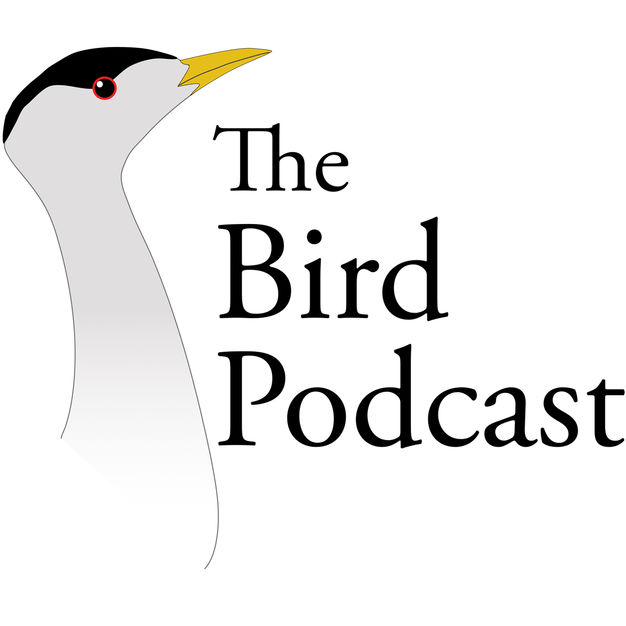
Bird Podcast
Shoba Narayan
Welcome to the Bird Podcast — hosted by Shoba Narayan.
- 35 minutes 35 secondsEpisode 75: Gynandomorphism in birds with Dr. Hamish Spencer
The sex of a bird – whether it is male or female – is one of the most critical aspects of its biology. Males and females often behave differently, especially during the breeding season, and in many species, they have strikingly different plumages.
This episode features Dr. Hamish Spencer, an evolutionary biologist at the University of Otago in southern New Zealand. Hamish was recently in Colombia, where he was shown a bird that violated these rules.
Colombian ornithologist John Murillo had discovered a very unusual Green Honeycreeper (Chlorophanes spiza) on his farm near Manizales in Colombia and pointed it out to Hamish when he visited early in 2023. The bird exhibited aqua-blue male plumage on its right and grass-green female plumage on its left. The bird’s head showed the black hood of a typical male on the right, but the left side was mostly green.
This episode discusses this bizarre phenomenon, known as bilateral gynandromorphy. How did it affect this particular bird? How does it arise? How common is it? Which species has it been observed in?
The article reporting this find has colour photos taken by John Murillo and is available at https://journal.afonet.org/vol94/iss4/art12/
John Murillo’s video can be seen at https://figshare.com/articles/media/DSCN2268_MOV/23739894
21 March 2024, 2:25 pm - 7 minutes 44 secondsEpisode 74: A pigeon’s nest at home and its ripple effects
When a pigeon comes into the house. This is a controversial episode. In fact, I am pretty sure nobody in the nature groups that I am part of will approve of this. In fact, they may even condemn this episode. Because you see, it is about pigeons, which birders call flying pests. But here’s what happened and so, if you listen or watch this episode, advance apologies.
About six months ago, a rock pigeon made a nest in my mother-in-law's balcony. This episode is about the ripple effects after that.
One day, I returned after a long trip and visited my mother-in-law who lives in a separate apartment in my building to discover that a pigeon had laid two eggs on a chair that she uses to sit on in her balcony. My mother in law was quite delighted with this development. She lives alone and having a living creature inhabit her home gave her a lot of pleasure. The problem is that these feral pigeons– rock doves– are carriers of disease.
Bird Podcast is one of the Top 20 science podcasts in India per Feedspot.
11 March 2024, 8:24 am - 40 minutes 34 secondsEpisode 73: Birds and Shola Forests with Dr. V.V. Robin18 January 2024, 2:22 pm
- 9 minutes 10 secondsSpecial Episode: How did you get into birding
Here is a special episode about how different Bangalore birding experts got into birding.
23 November 2023, 12:18 pm - 18 minutes 19 secondsEpisode 72: Birding in Mauritius13 November 2023, 3:02 pm
- 10 minutes 19 secondsEpisode 71: The biodiverse splendour of Bhutan
This episode is about Bhutan: carbon-negative, Buddhist and a pioneer in sustainable tourism. This tiny country, about the size of Switzerland contains 774 species. In comparison, neighbouring India— nearly ten times the size— has just 1200 species. Here we talk to Namgay Tshering a freelance birding guide about the birds of Bhutan. Specifically he mentions the Beautiful Nuthatch, the Blyth’s tragopan, the Himalayan Monal and others. He talks about how Eastern and Southern Bhutan are a haven for birdwatchers, perhaps because the main cities of Paro, Thimphu and Punakha are far from these locales. Watch this episode on Youtube for visuals of Bhutan.
28 September 2023, 3:10 am - 6 minutes 45 secondsEpisode 70: Toucanets and hummingbirds in Costa Rica
In this episode, we talk to a resident naturalist about the motmots, hummingbirds and toucanets that you can see in Costa Rica.
27 August 2023, 2:30 am - 11 minutes 38 secondsEpisode 69: The Resplendent Quetzal of Costa Rica13 August 2023, 2:30 am
- 33 minutes 31 secondsEpisode 68: Delhi birds with Sudhir Vyas
Delhi and its neighbourhoods, with its variety of habitats and landscapes, is remarkable for the wealth and diversity of its avifauna. It is a true haven for bird lovers, home to an astonishing array of over 470 captivating bird species. Get ready for an enchanting adventure with Sudhir Vyas's delightful book, "The Birds of the Delhi Area," which is the ultimate guide to unlocking the secrets of these feathered wonders! This book has been edited by Anita Mani under Indian Pitta- India's first imprint dedicated to birds.
With over 50 years of bird watching experience, Sudhir Vyas, a former career diplomat, possesses an intimate understanding of Delhi's avian inhabitants. His expertise shines through numerous articles and studies on ornithology in the Delhi area. An invaluable resource for the rapidly growing community of bird watchers in Delhi and beyond, it explores the diverse avifauna of the region. Accompanying Vyas's words are the breathtaking photographs of by a number of bird photographers, including by Amit Sharma, a passionate wildlife and bird photographer, whose images comprise the bulk of the pictures that illustrate the book and bring the birds and their varied habitats to life.
30 July 2023, 2:30 am - 9 minutes 7 secondsEpisode 67: The three-wattled bell-bird, Monteverde, Costa Rica
This is the first of three episodes about the bird life in Costa Rica.
This one focuses on the three-wattled bell-bird and the episode is set in the Monteverde Cloud Forest Reserve.
Listen to the bellbird on Youtube here.
Meet One Of The Loudest Birds In The World (Three-wattled Bellbird)
Thanks to these photographers for their images
https://unsplash.com/@zmachacek
https://unsplash.com/@feiffert
Thanks to Michael Brooks for this video of the bird calling
https://www.youtube.com/watch?v=Js9rqJZ_a-8&list=PPSV
Featured image from Wikimedia Commons
16 July 2023, 2:30 am - 34 minutes 45 secondsEpisode 66: Pleasures of birdwatching with Aasheesh Pittie
About Aasheesh Pittie’s book of essays, The Living Air. If you’re looking for new ways to engage with birds and birdwatching, Aasheesh Pittie’s book of essays, The Living Air is a great place to start. This book will not only make you want to get out and observe your city and surroundings in a whole new light, but it will also offer a fresh perspective into what birdwatching is and the many ways you can benefit from it. Informative yet a joy to read, The Living Air is an excellent introduction to the transformative pleasures of birdwatching. The Indian Pitta Books is India’s first dedicated book imprint for bird lovers, conservationists and policy makers.
Bio
Aasheesh Pittie is the editor of the ornithological journal Indian BIRDS. He has been the engine behind books such as Birds in Books: Three Hundred Years of South Asian Ornithology (2010), and The Written Bird: Birds in Books 2 (2022). Aasheesh has also compiled a searchable bibliographic database of over 35,000 works on South Asian ornithology (southasiaornith.in).
Questions:
-
For those who haven’t read it, what are the themes in your book
-
Your book begins with the Jerdon’s Courser and the Great Indian Bustard. You are lucky to have seen them. Can you describe this?
-
Your book encourages absorption in bird watching. Were you always this way? What was your evolution as a bird watcher?
-
I loved your chapter, “My kind of birding.” That paragraph about the art of becoming invisible….” Please describe your kind of birding, your thoughts on cultivation of patience and its rewards. What are the rewards? And how can you cultivate this mindset.
-
Dabchicks. How can they absorb you for hours? How can you teach this. ‘Disappearing Dabchicks’. It describes his visit to a local pond, where Aasheesh became entranced by these gloriously ball-like waterbirds and before he knew it, the ‘sun was balanced on the horizon … the disporting Dabchicks had engrossed me for three hours’.
-
In your chapter on the bouquet of Benishaan, you write that “the character of a place, its ambience, takes on the sheen of the temporal moods and perceptions of the observer.” Please elaborate. The context is that many of the places you describe are in South India, but since our audience is global, wanted some takeaways for them as well. So if you live in a particular place, be in Northern Europe or South America, how can you approach birding in the Aasheesh Pittie way.
-
Tell us about your methodical and elaborate list process- now available on ebird. But please describe how you kept notes and the value of those notes?
-
What was your writing process for this book? And how do you know so many specific but unusual words? “but remaining with it through the quiddity of its habitat…”
-
What is your birding routine?
-
What issues absorb you these days?
-
What are your favourite species of birds?
2 July 2023, 2:30 am -
- More Episodes? Get the App
Your feedback is valuable to us. Should you encounter any bugs, glitches, lack of functionality or other problems, please email us on [email protected] or join Moon.FM Telegram Group where you can talk directly to the dev team who are happy to answer any queries.
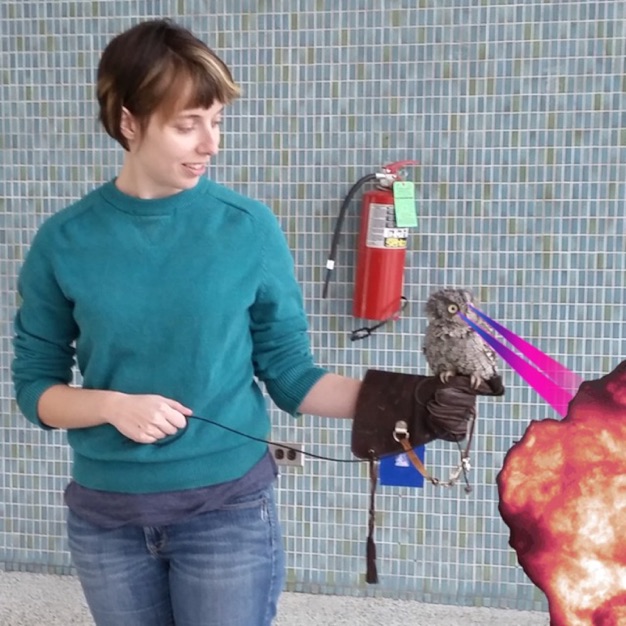 Urban Birding and the Burden of Bourbon
Urban Birding and the Burden of Bourbon
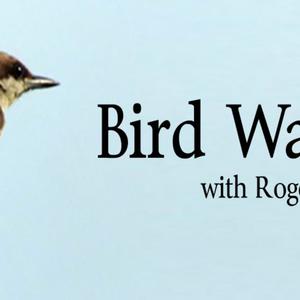 Bird Watch with Roger Taylor
Bird Watch with Roger Taylor
 Grumpy Old Birder
Grumpy Old Birder
 Hannah and Erik Go Birding
Hannah and Erik Go Birding
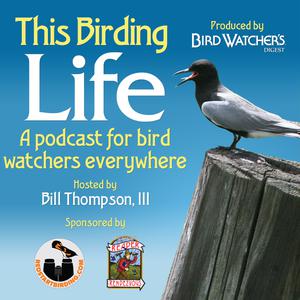 This Birding Life (Enhanced)
This Birding Life (Enhanced)
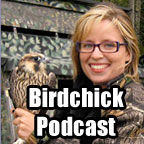 Birdchick Podcast
Birdchick Podcast